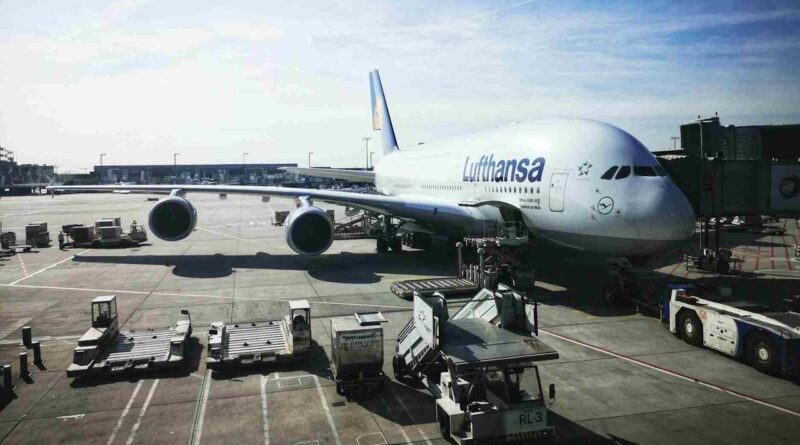Ground Handling Services Providers: The Backbone
Introduction
Ground handling services are crucial to the efficient functioning of the aviation industry. They encompass a wide array of activities that occur on the ground, from passenger check-in to aircraft servicing, cargo handling, and more. Ground Handling Service Providers (GHSPs) are specialized companies that offer these essential services to airlines and airport authorities, ensuring that flights operate smoothly and safely. This article delves into the roles and responsibilities of ground handling service providers, the various types of services they offer, the challenges they face, and the future of the industry.
What Are Ground Handling Services?
Ground handling involves all services that support an aircraft on the ground, from its arrival until its departure. These services can be broadly categorized into two main types:
- Passenger Services: This includes check-in, boarding, baggage handling, and customer service at the airport. It plays a vital role in ensuring a seamless travel experience for passengers.
- Ramp Services: This refers to activities that take place on the tarmac, such as loading and unloading of cargo, fueling, de-icing, towing, and routine inspections.
- Cargo Services: GHSPs handle the logistics of air freight, including the loading, unloading, and warehousing of cargo, ensuring compliance with safety regulations.
Key Responsibilities of Ground Handling Service Providers
Ground Handling Services Providers play a pivotal role in several critical areas:
- Check-in and Boarding Procedures: GHSPs manage the entire check-in process, including document verification, boarding pass issuance, and baggage ticketing.
- Baggage Handling: Efficient handling of passenger luggage is essential for customer satisfaction. GHSPs must manage the transfer of baggage between the aircraft and terminal efficiently.
- Load Control: Ensuring the aircraft is balanced and within weight limits is vital for safety. Ground handlers are responsible for accurate load planning.
- Aircraft Servicing: GHSPs perform routine maintenance on aircraft during turnarounds, such as refueling, cleaning, and conducting safety checks.
- Cargo Operations: GHSPs manage air freight logistics, ensuring timely and safe handling of goods transported by aircraft.
- Customer Service: A key role of GHSPs is to provide excellent customer service to passengers, assisting with inquiries, providing information, and resolving issues.
Types of Ground Handling Service Providers
Ground handling services may be provided by various types of organizations:
- Airport Authorities: In many cases, airports have their own ground handling departments that provide services for all airlines operating at their facility.
- Third-Party Ground Handlers: Independent companies management provides handling services to multiple airlines. These companies may specialize in certain types of services, such as cargo handling or passenger services.
- Airline-Owned Ground Handlers: Some airlines maintain their ground handling services to streamline operations and ensure consistent service quality.
- Integrators: Companies like FedEx and UPS, which provide air cargo services, offer their own ground handling to facilitate expanded logistics capabilities.
Challenges Faced by Ground Handling Services Providers
The ground handling industry faces several challenges, including:
- Labor Shortages: The aviation industry has been hit hard by labor shortages, particularly after the COVID-19 pandemic. Attracting and retaining skilled workers remains a significant challenge.
- Complex Regulations: Compliance with safety and security regulations from national and international authorities can be complex and time-consuming, requiring significant resources.
- Technological Advances: The demand for technology-driven solutions, such as automated check-in kiosks and sophisticated baggage tracking systems, requires continuous investment and adaptation.
- Increased Competition: The presence of multiple handlers at airports drives competition, forcing companies to continually enhance services while managing costs.
The Future of Ground Handling Services
As the aviation industry rebounds and strives for increased efficiency, the ground handling sector is likely to experience significant changes:
Embracing Technology
Advancements in technology, such as Artificial Intelligence (AI) and the Internet of Things (IoT), are set to revolutionize ground handling operations. Automated systems will optimize baggage flow, enhance safety protocols, and improve customer experience through real-time updates and notifications.
Sustainable Practices
With growing awareness of environmental issues, GHSPs are increasingly adopting sustainable practices. This includes the use of electric ground support equipment (GSE), efficient waste management systems, and carbon offset initiatives. Airlines and airports are pressuring GHSPs to align with sustainability goals to reduce the aviation industry’s carbon footprint.
Partnerships and Collaboration
The future of ground handling may also lie in closer partnerships between airlines, airports, and ground handling companies. Such collaborations can enhance efficiency, reduce costs, and improve service quality for passengers, creating a seamless travel experience.
Conclusion
Ground Handling Services Providers are an indispensable part of the aviation industry, ensuring efficient and safe operations at airports around the world. Despite facing numerous challenges, including labor shortages and the quest for technological advancements, the sector is poised for evolution and growth. By embracing innovation and focusing on customer service, GHSPs will continue to play a vital role in shaping the future of air travel. As we move forward, the importance of these specialized providers will only increase, highlighting the critical role they play in the overall aviation landscape.
Located : United Kindgom, United Arab Emirates




